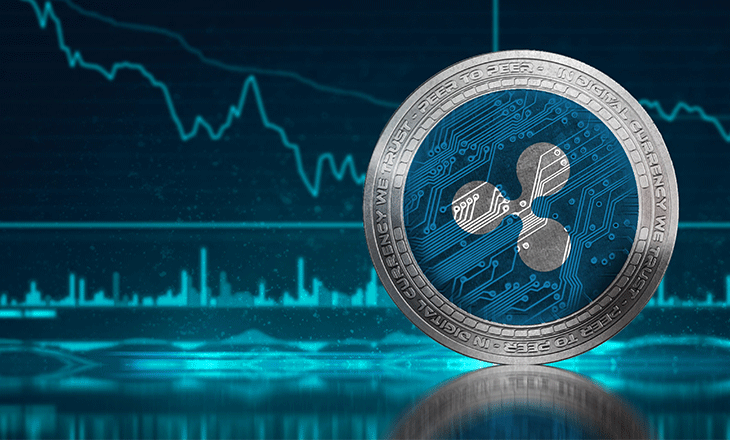Brad Garlinghouse, the talkative CEO of Ripple Labs and manager of the XRP token, has taken to the speaking trail to defend his product offering, but in an odd twist, his critics claim that he is trying to distance himself from the creation of the XRP token. Yes, his ongoing battle with the SWIFT organization seems to be a David versus Goliath type of face off, but his rewriting of crypto history seems out of place. Is he fearful that his previous remarks might cause a backlash at the SEC? It is only speculation for now.
Brad recently spoke in Manhattan at a meeting of The Economic Club of New York and described his ongoing battle to bring modern-day efficiencies to an antiquated cross-border payments system that depends upon centralization processes ruled over by the SWIFT organization. According to The Daily Hodl, Garlinghouse said:
You have north of $20 trillion going cross border each year. It is fraught with error rates and it’s slow and it’s expensive. For me, it’s the classic Silicon Valley going up against the big behemoth, Goliath. But it’s so broken. When I go talk to banks, it’s a beautiful thing for me because banks don’t like Swift.
Sporting a global network of some 200+ banking partners, he noted further that:
They’re frustrated with Swift. Their customers don’t like Swift. That’s a great place to be when you’re selling into that… We have been so fortunate through a little bit of luck and a little bit of skill that we find ourselves with a lot of momentum in, I think, really solving a problem using these technologies at scale.
The fully stated mission of Ripple Labs and its XRP token is to provide an alternative pathway for banks to move money between global endpoints in a timelier manner, for less expense, and at a far greater efficiency than today’s outdated system. The platform achieves its swiftness, no pun intended, by avoiding the mining necessity of other cryptos by employing what it calls a “consensus algorithm”.
Garlinghouse explains:
The original engineers who developed the XRP Ledger were early Bitcoin engineers who saw that there was going to be a Bitcoin scalability problem over time… This group of engineers developed the XRP technology. It’s an open-source technology. Ripple owns a lot of XRP. We own about 55% of all XRP. So clearly we’re very interested in the health and success of that ecosystem, but it is an open-source technology that Ripple uses in its technical stack.
XRP token values actually appreciated over the last few days, hitting $0.27. It had peaked a while back at $0.32, while its low for the past 52 weeks has been $0.227. For 2019, however, XRP has lost ground, roughly 25%, while other cryptos have soared. It remains mired in controversy due to Ripple Labs “dumping” of tokens on the open market to fund operations. There is also an overhanging threat that the SEC could deem the token a security and assess penalties and fines down the line – not a pretty picture.
At the same time, old wounds seem to be festering. Nic Carter, Coinmetrics.io co-founder and Castle Island Ventures partner, has accused the company of trying to “obfuscate history” by denying that they had anything to do with creating the Ripple ledger system or XRP. Cointelegraph reports Carter as saying:
For the record, these psychopaths are still literally and without a shred of irony claiming that they ‘discovered’ XRP as opposed to having created it.
Carter takes issue with how Ripple management is attempting to re-frame its relationship with XRP and the Ripple platform. Attorney Preston Byrne asserted in 2018 that corporate filings indicated that no official ledger or XRP transactions ever took place before Ripple Labs was incorporated in late 2012.
The “disconnect” occurred when Carter interviewed Garlinghouse at a later date, when the CEO claimed:
One really important distinction is, the XRP ledger existed before Ripple the company. Certainly we are an interested party in the success of the XRP ledger, for sure — we own a lot of XRP. But it’s a little bit like saying, Exxon owns a lot of oil. That doesn’t make oil a security.
Garlinghouse seems bent on broadcasting a new relationship with the XRP token, perhaps, to insulate Ripple Labs and his staff from any potential lawsuits or SEC consequences down the road, as Carter appears to imply. Whatever the reason, XRP investors are losing their patience, which typically results in a lawsuit one-way or another.
More recent news from Ripple can be found below:
